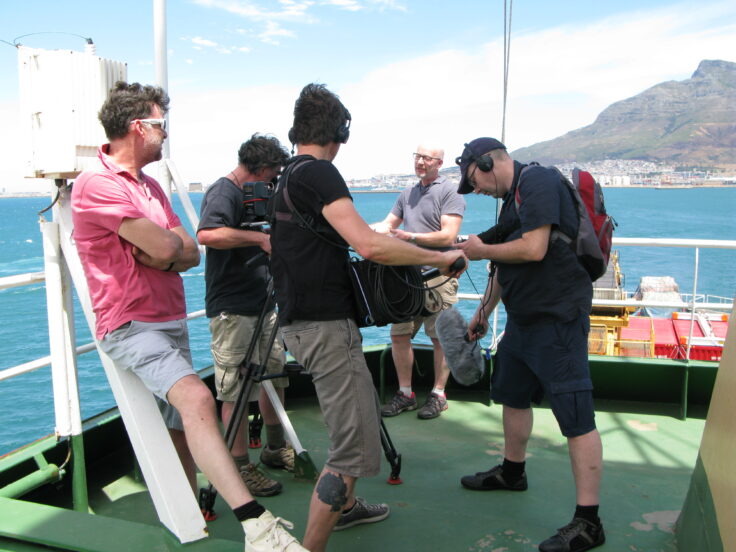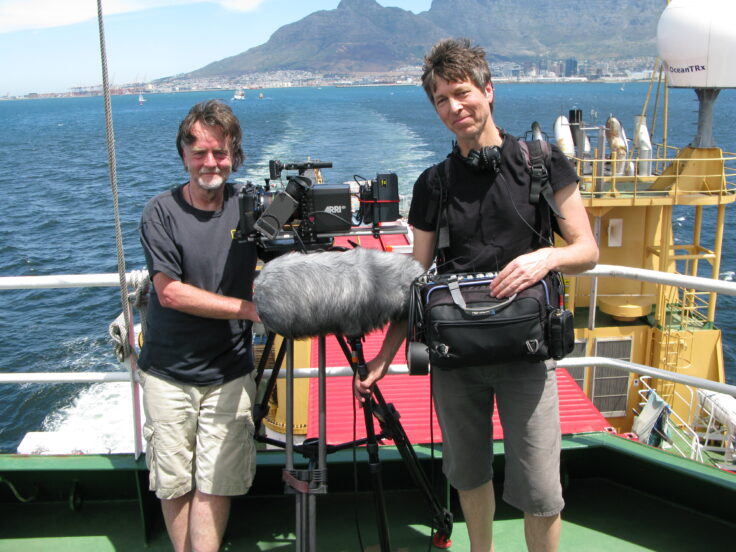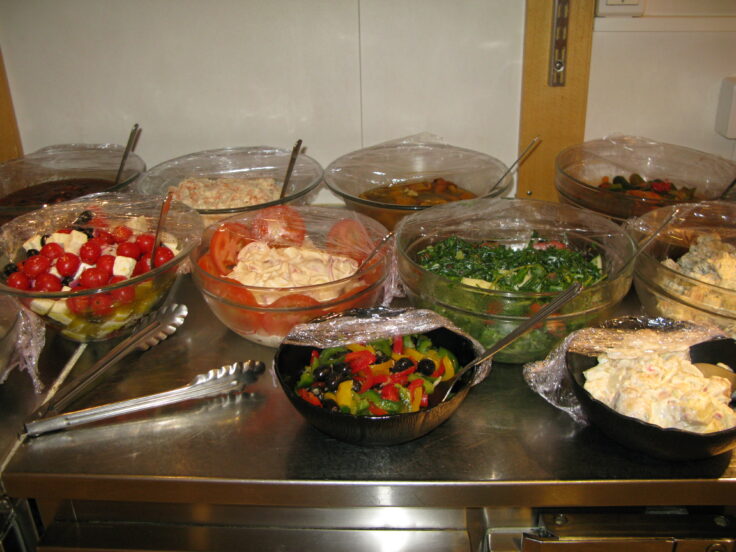ANTARCTIC BLOG: BBC crew enroute to Halley #1
19 January, 2016 RRS Ernest Shackleton
Antarctica is extraordinary. It is a continent of superlatives – breathtaking, beautiful, hostile, awe-inspiring and life-changing. A trip to the ice always gets under my skin. It somehow puts my life into perspective.
BBC weather forecaster Peter Gibbs agrees. I’m accompanying him and a BBC crew on the Royal Research Ship Ernest Shackleton to the frozen continent. We’ll be travelling the 3,500 miles from Cape Town to our Halley Research Station on the Brunt Ice Shelf, hoping to arrive at the end of January.

Peter over-wintered at Halley 3 in 1980-1982 as a Meteorologist for BAS at the tender age of 21. He says Antarctica changed him forever. And now he’s returning to Halley some 36 years later with the BBC to make a TV and radio documentary. He’ll compare how it was in the ’80s and showcase the scientific research done at Halley.
This trip has been years in the making. Peter first approached BAS about this idea over five years ago, and for one reason or another it never happened. And yet here we are now, bobbing about in the Southern Ocean about to cross the Southern Convergence and into the colder climes of Antarctica.

Peter is so excited to be returning to Halley and is happily doing interviews over the phone (Skype won’t work due to the limited bandwidth) with BBC Radio 4 PM, BBC Radio 5 Live and the BBC News Channel. Plus there’s lots of content for the BBC Weather website and BAS’s Facebook and Twitter channels.
Life on the ship is very comfortable and we are accommodated in every way possible. The ship’s crew are 27 and the rest of us from BAS and the BBC are another 10. We each have our own cabin, three home-cooked, delicious meals every day (the cooks are talented and cater to all tastes) and there’s even a gym and sauna. It’s almost like a tiny city – we have everything we need here to live extremely comfortably. Each of us has to take turns to do ‘gash’, which is helping in the kitchen, washing up and cleaning the communal areas. Peter took on gash duties yesterday, spending time peeling parsnips and garlic. He explained more about his time on board the ship so far to Eddie Mair on BBC Radio 4’s PM Programme (scroll through to 44 minutes).

It transpires the ship’s captain John Harper sailed with Peter on the RRS Bransfield (our previous logistics vessel up to 1999) in 1982. John rose through the ranks and is proud to be Captain of a royal research ship. He talks about the challenges of navigating through the ice here.
We’re all now looking forward to getting to the ice. As we left Cape Town we hit a large swell and most of the ship’s crew and passengers ran for cover. As I lay in my bed I felt like I was on a theme-park ride with no option to get off. I am slowly getting my sea legs, but it does take time. There is nothing to see for miles around – just a big blue ocean and a few sea birds trailing behind.
It’s a great privilege to be here – and I see Peter and his BBC crew are very excited about what lies ahead. Being so far from family we’ve left behind is difficult at times. At home my husband and daughter have had the flu and so my 10 year old son has been in charge. I know they’ll manage, but it’s hard to hear their challenges when you’re thousands of miles away.
In a few days when we get to the ice, the superlatives will start. And then I can start to let this magical place get under my skin again.